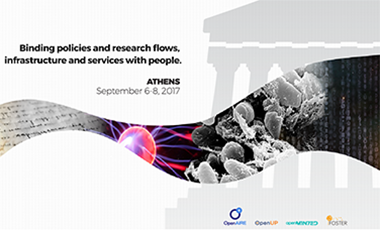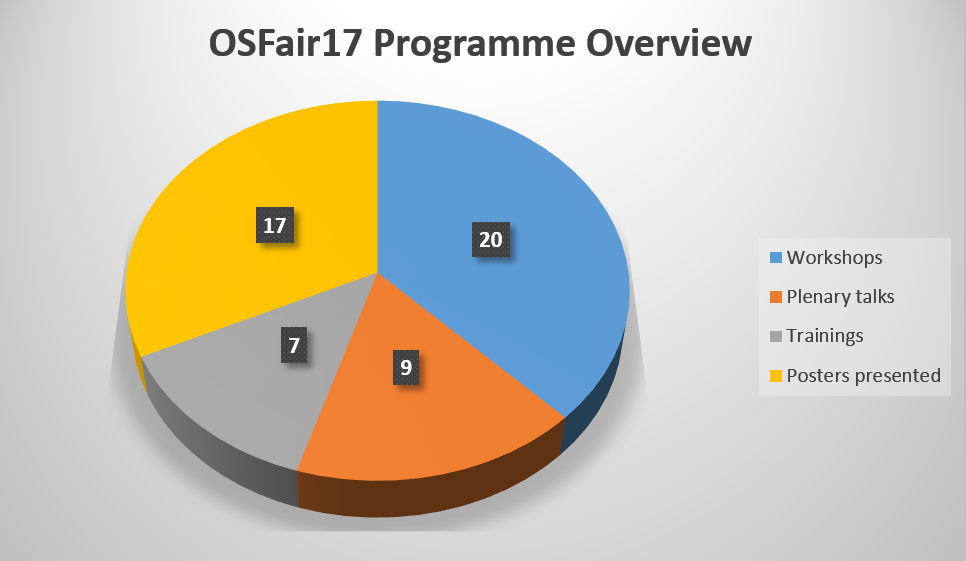OSFair2017 in a nutshell
Open Science Fair celebrated the launching of its first international event.
Organisers: OpenUP, OpenAIRE, FOSTER, OpenMinTeD
All actors of Open Science at regional, national, European and global level, were brought together to discuss the next steps to take and the solutions needed to overcome the barriers that the scientific community addresses over the years.
Key topics addressed: e-infrastructures and services, policies as guidance for good practices, research flows and new types of activities (disseminate, mine, review, assess, etc.), the roles of the respective actors and their networks.
The conference was kicked-off with a welcoming speech of the Minister of Education, Kostas Gavroglou. Next on the agenda, Nektarios Tavernarakis, President of the FORTH & member of the Scientific Council of the European Research Council (ERC), presented the perspective of ERC towards open access. The first day closed with the remarkable speech of Jeffrey D. Sachs, Earth Institute Columbia University, on sustainable development in the times of crisis and the role of education.
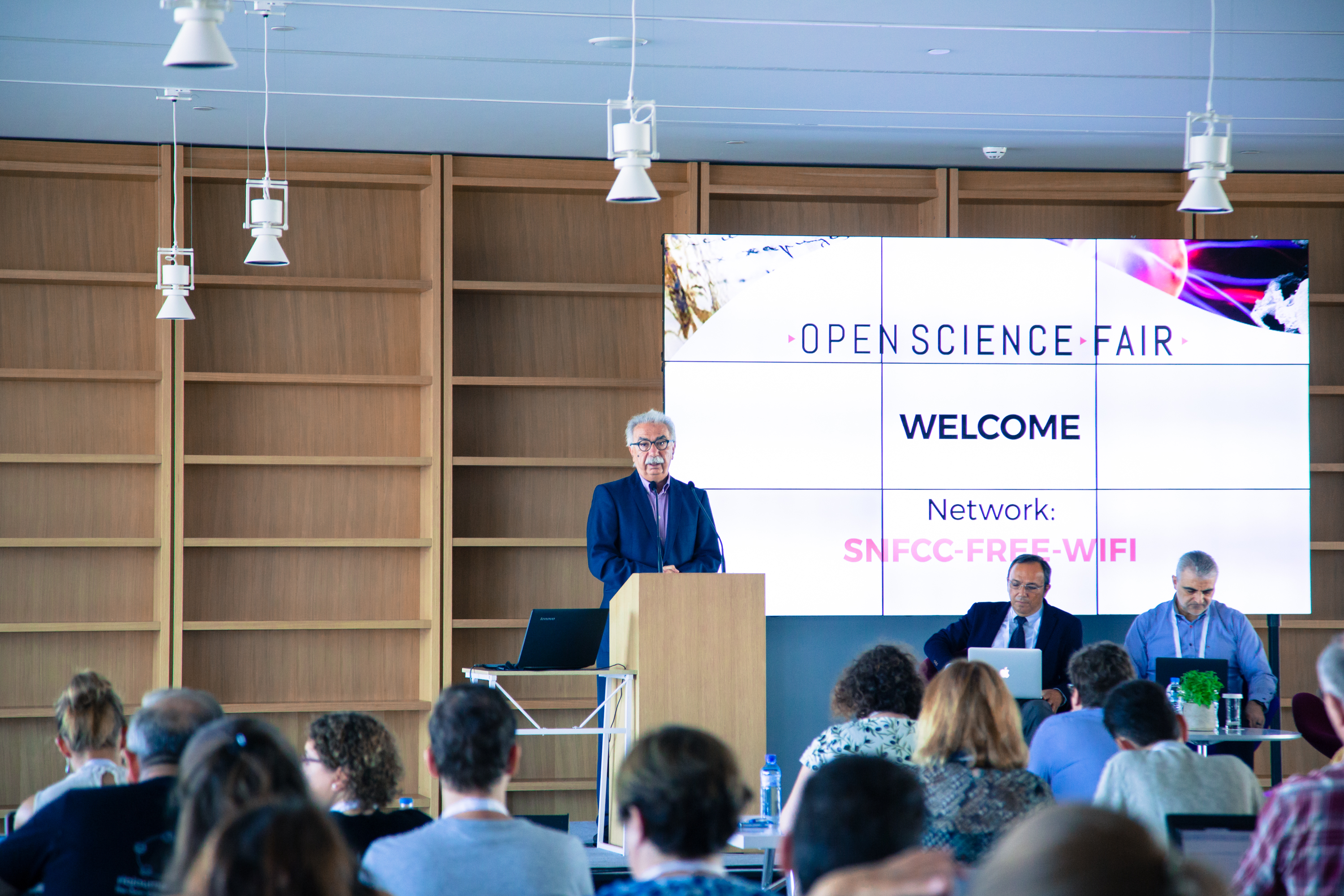 |
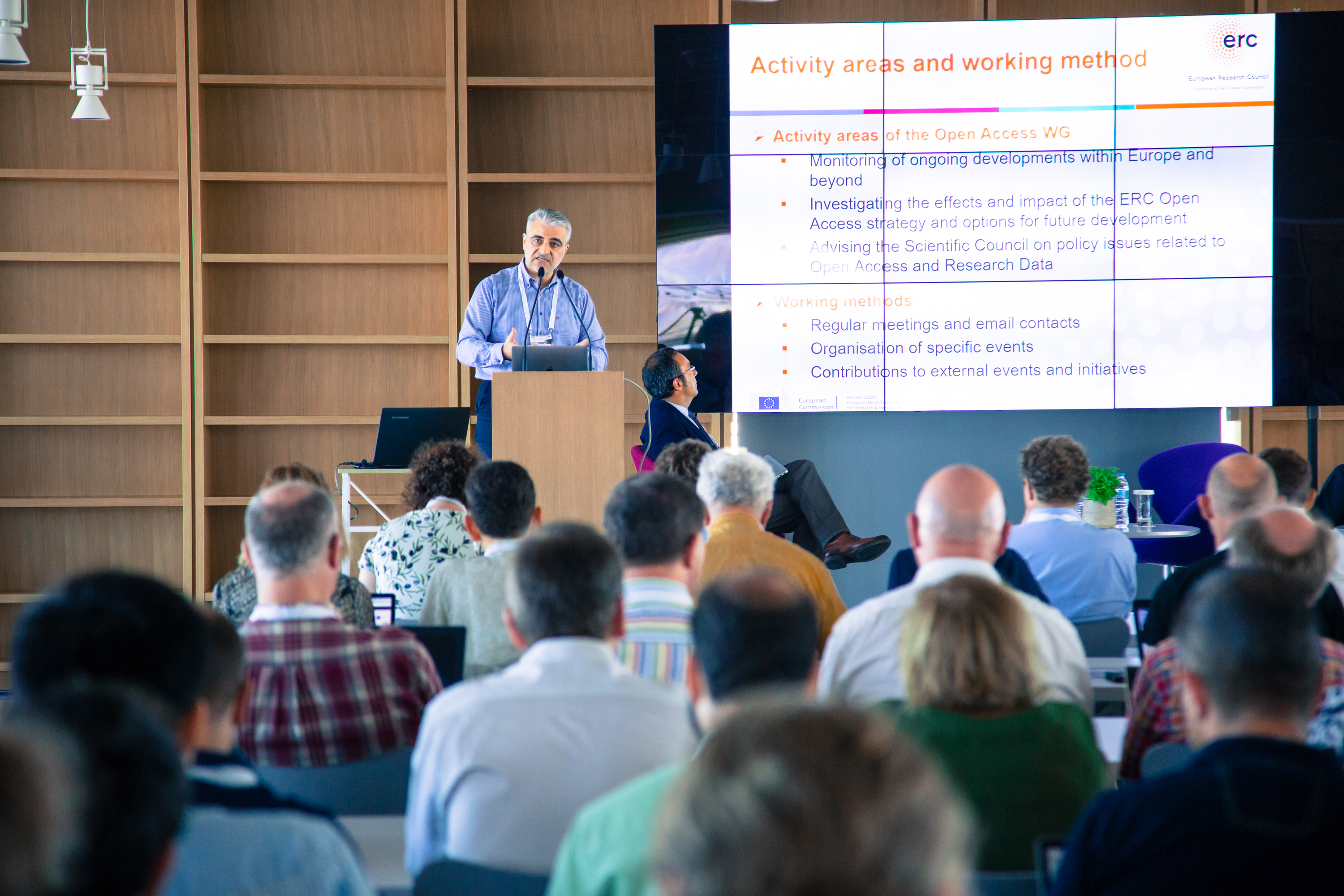 |
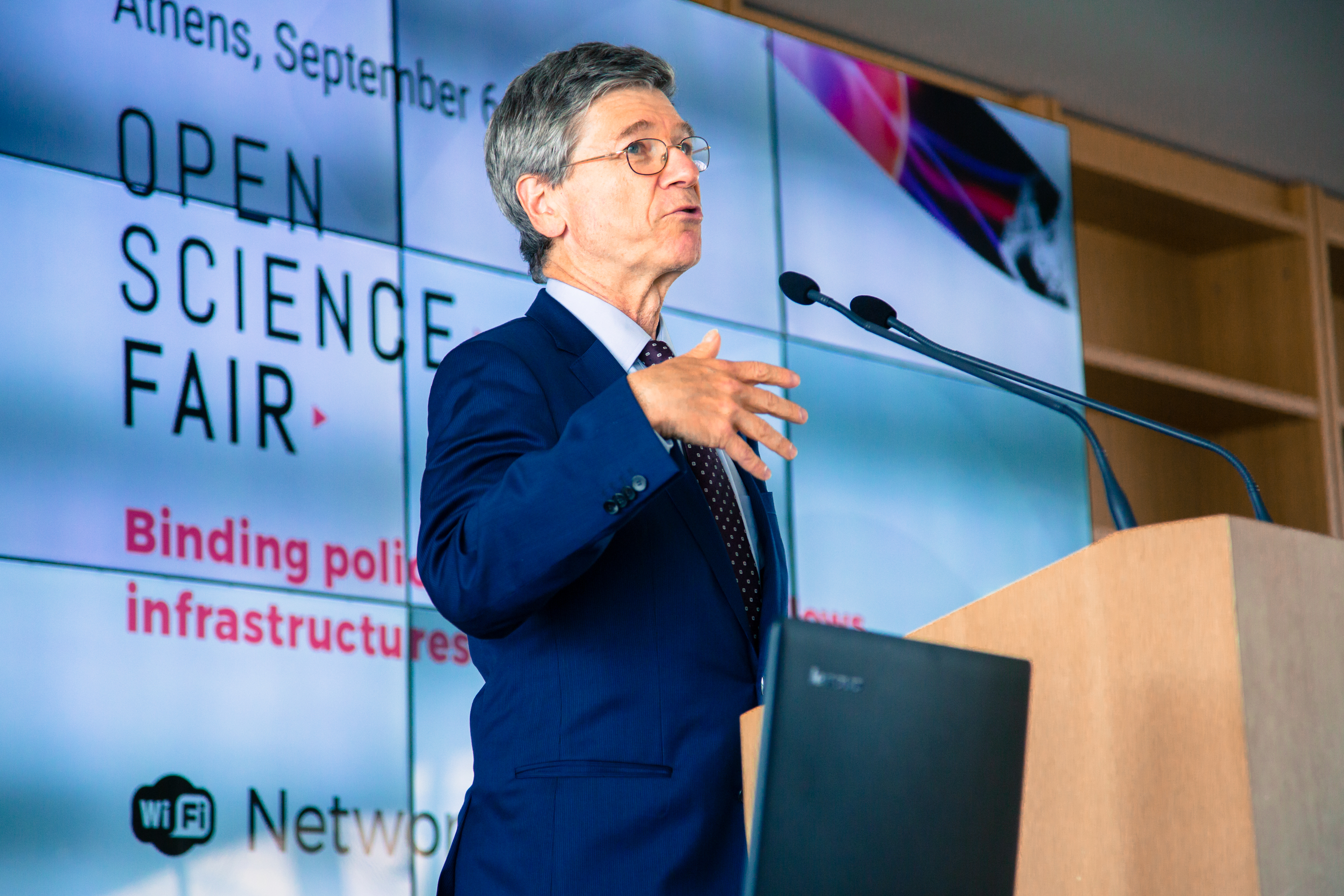 |
Left: welcoming speech to the OSFair2017 of the Minister of Education, Kostas Gavroglou. Middle: Nektarios Tavernarakis on Open access and data integrity - The ERC initiative. Right: Jeffrey D. Sachs,on sustainable development in the times of crisis and the role of education.
The second day, opened with the exciting talks of Jon Tennant, communications director ScienceOpen, Ahmed Oluwagbemi Ogunlaja, founder of the advocacy organization Open Access Nigeria and Maria Georgopoulou, Director of the Gennadius Library American School of Classical Studies at Athens, on diversity and disparity issues in Open Science. The 3 speakers addressed the subject from 3 different perspectives: young academics and barriers to Open Science, geographic diversity in science and the Global South and female pioneer researchers.
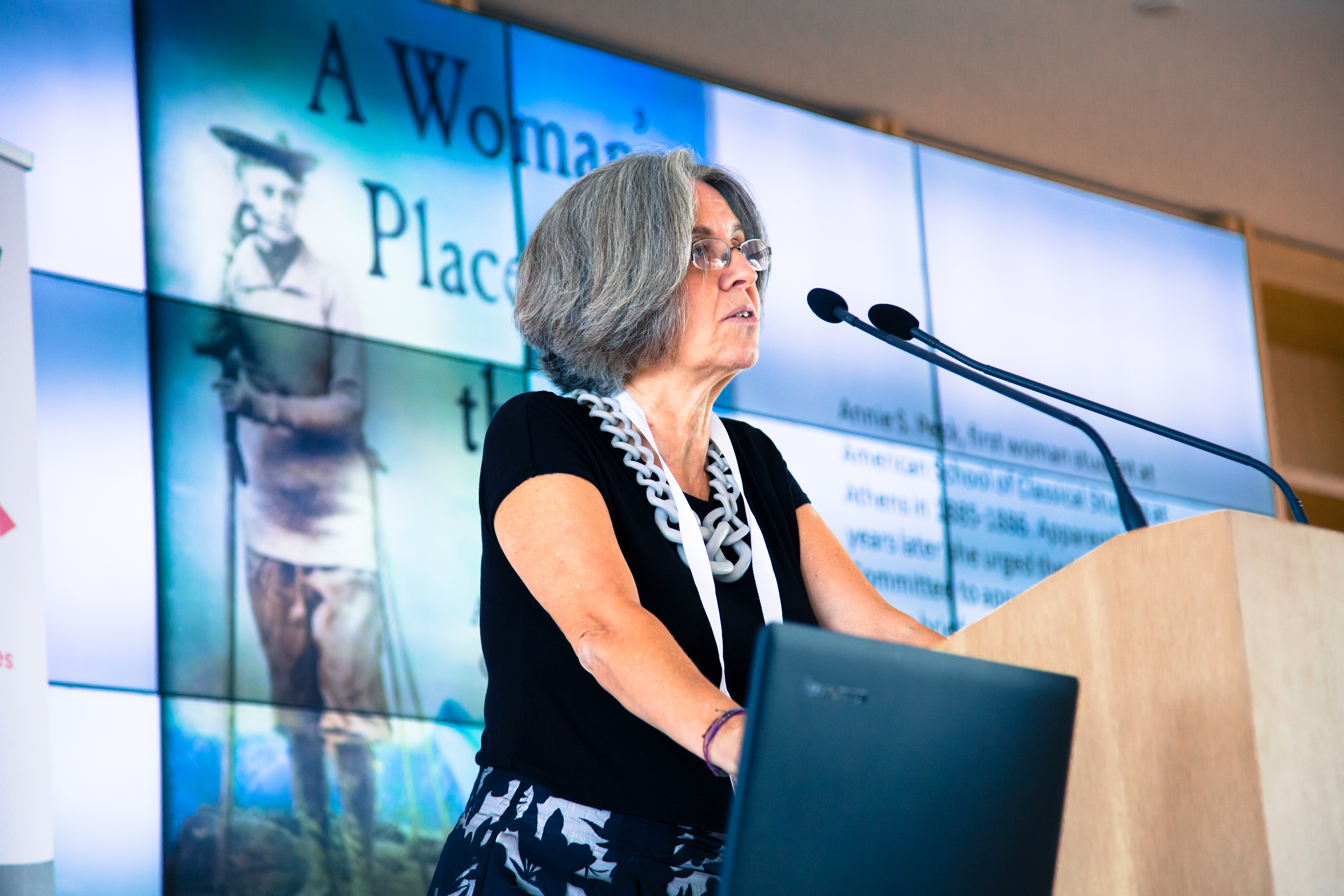 |
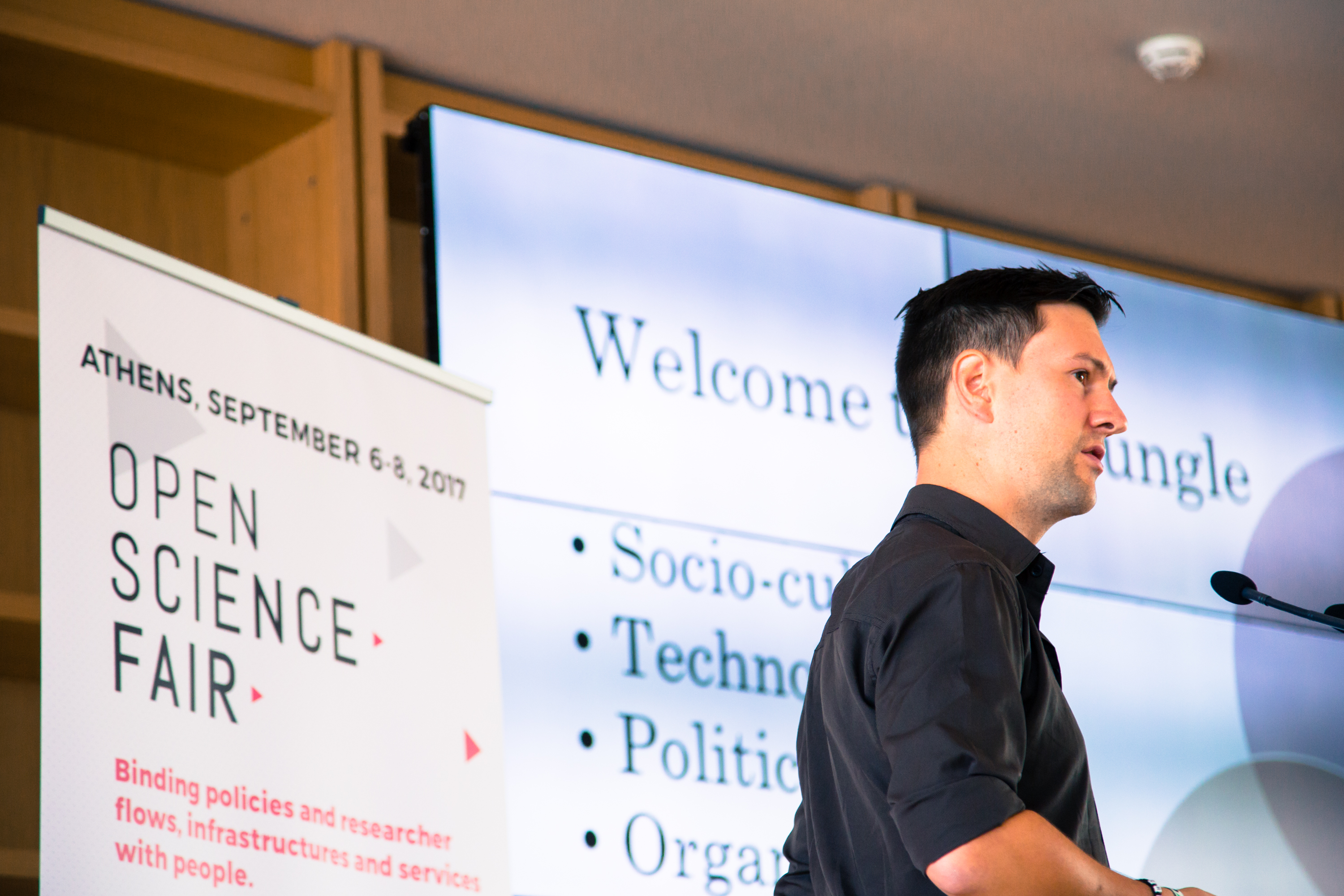 |
 |
Left: Maria Georgopoulou on the role of women in exploring, understanding & archiving the past. Middle: Jon Tennant on barriers to Open Science for junior researchers. Right: Ahmed Oluwagbemi Ogunlaja on Open Science from the Global South perspective.
The last day, the inspiring talk of John Ioannidis, Stanford University, on changing research practices towards reproducible research, initiated a vivid discussion about different notions of reproducibility in different scientific fields and closed successfully the three-day conference.
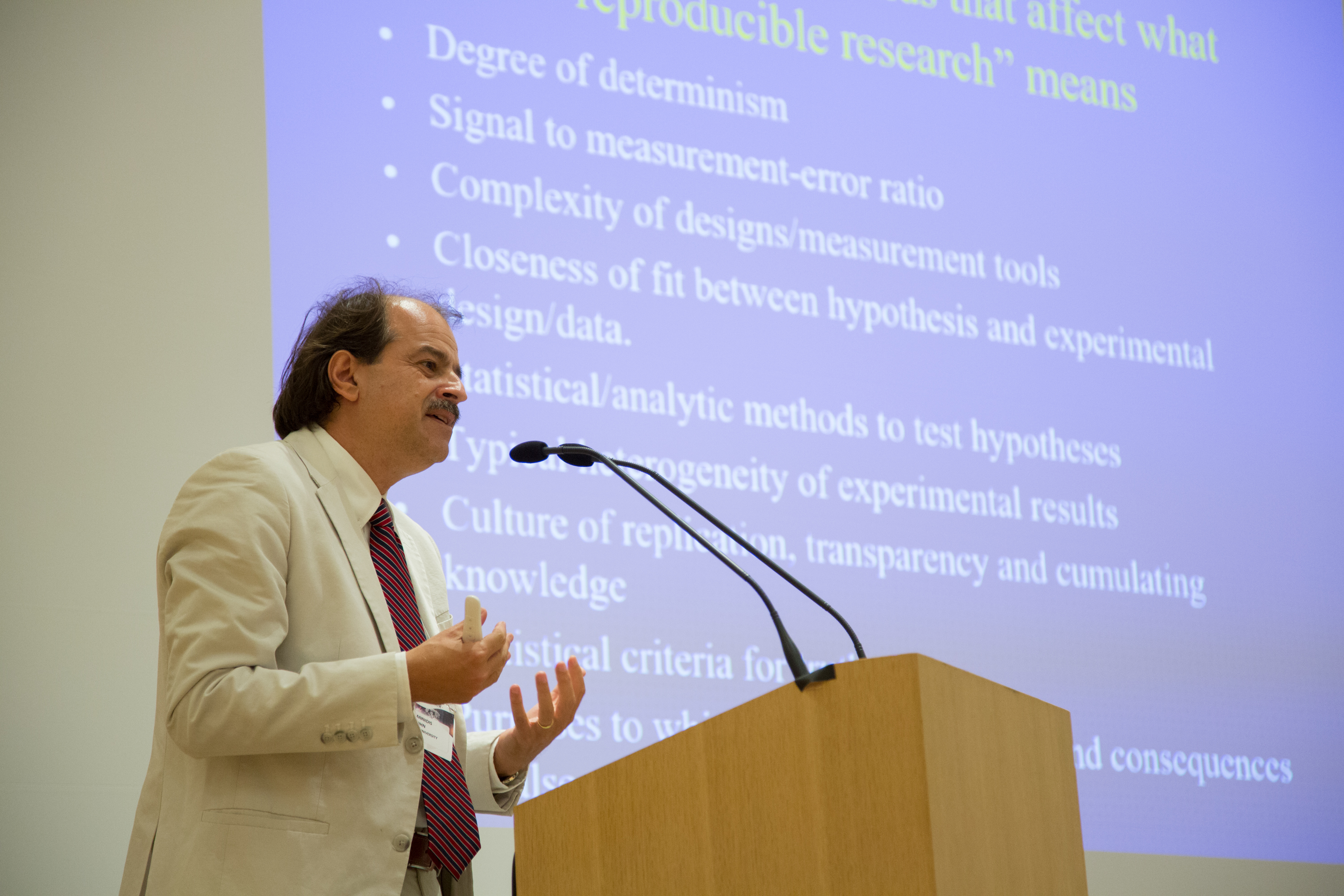 |
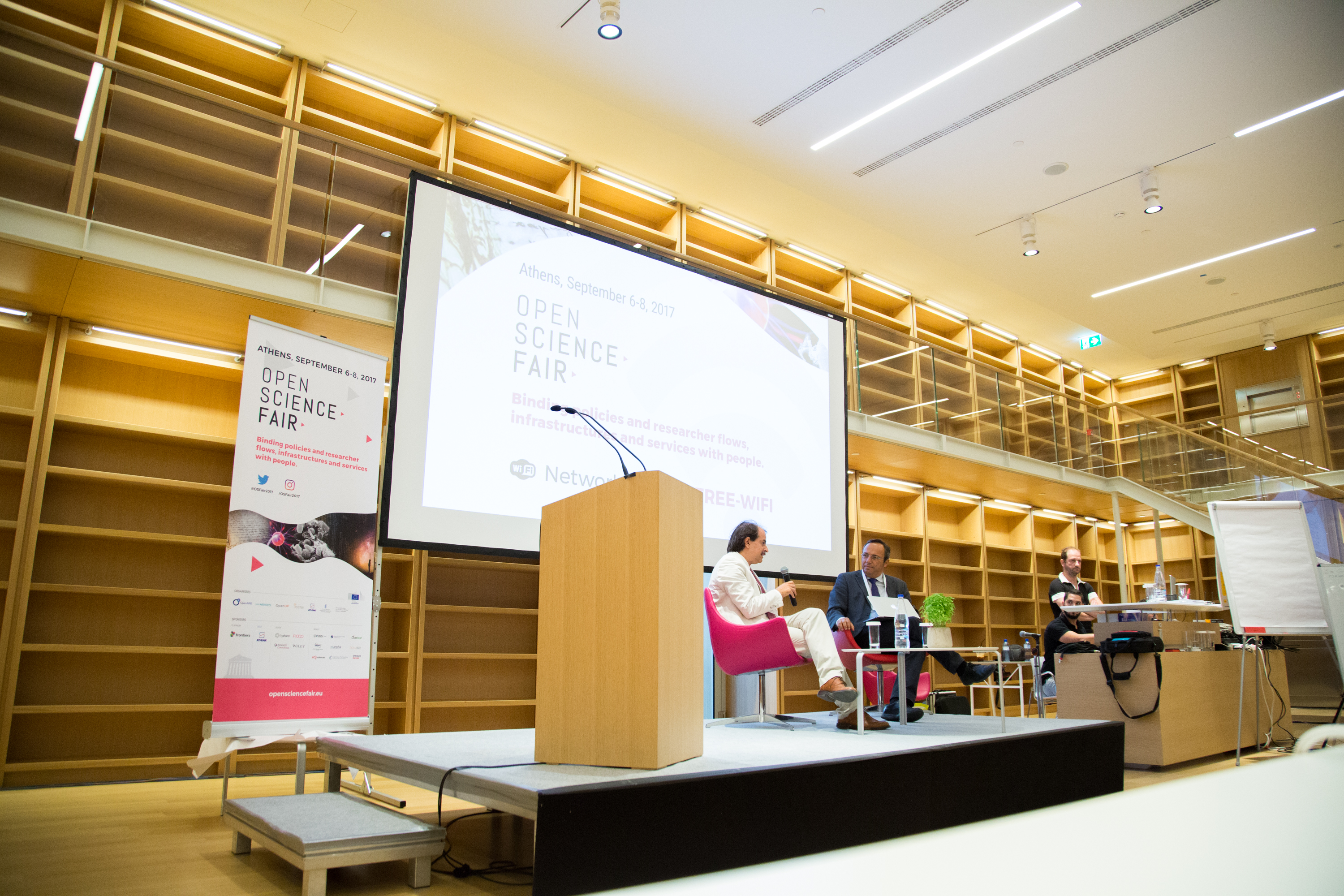 |
Left: Prof.John P.A on changing research practices towards reproducible research. Right: Q&A with Prof.John P.A. Ioannidis. Discussion moderator Yannis Ioannidis
All presentations and summaries of the workshops are available on the conference website.
Special thanks
A special thank you goes to all people who have contributed to the success of this event. Our sponsors our volunteers but most importantly to all participants who engaged to open up the dialogue for Open Science. Secondly, a special thanks go to our keynotes and speakers for their inspiring talks.
OSFair2017 in numbers
In these 3 amazing days, A significant number of open science advocates, representing a full range of actors in the field: funders and policy makers, publishers and content providers, representatives from research infrastructures/communities and institutions, researchers, librarians and innovators.
Topics mentioned in OSFair2017 online discussions
Μore than 540 online participants joined the event remotely and the online discussions on Twitter reached the number of 1551 unique Tweets1.
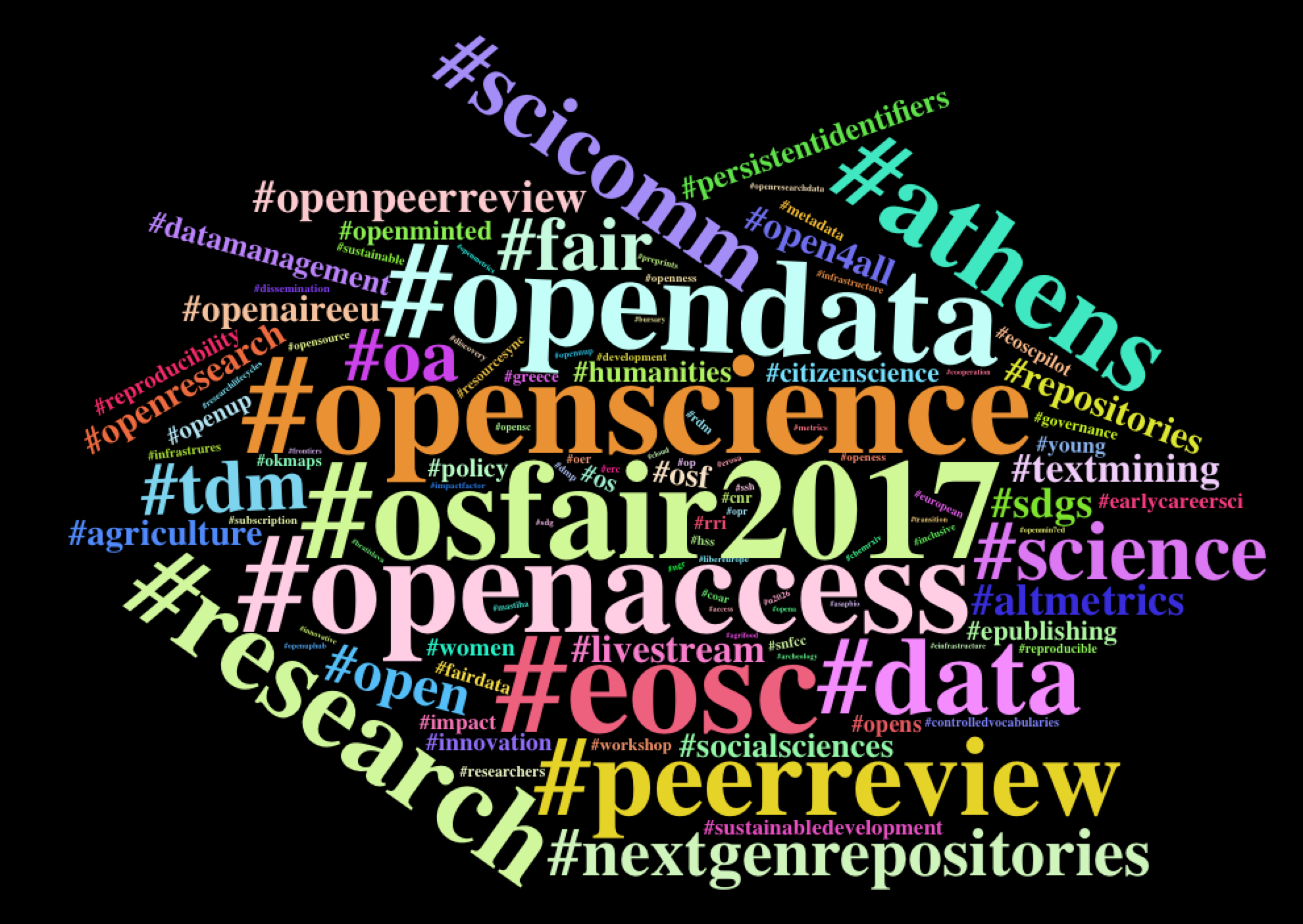
Topics mentioned in OSFair2017 online discussions
You can follow up the social media discussions using the following tags/links:
Twitter: #OSFair2017
1 Data imported from OpenUP team and refers to 06/09/17 07:10am to 09/26/17 17:30 pm
Related Articles
- https://www.openuphub.eu/community/blog/item/1st-open-science-fair-report-athens-september-2017
- https://www.openuphub.eu/community/blog/item/join-us-for-the-open-science-fair-2017
- https://www.openuphub.eu/community/blog/item/open-science-fair-2017
